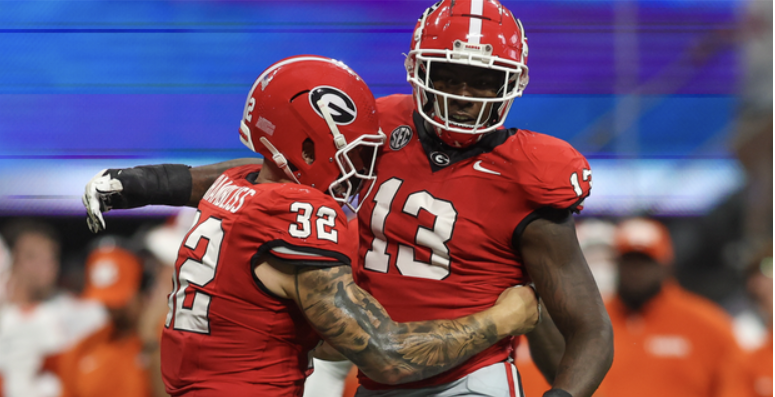
All is not well with the ‘best’ teams in college football.
The updated AP Poll was released on Tuesday, and we reached out to team insiders across our network to pinpoint the key concerns for each Top 25 team as they head into Week 2. While many teams showcased strong performances, a deeper dive into their rosters revealed vulnerabilities that could jeopardize their College Football Playoff aspirations.
Despite solid Week 1 showings from some of the nation’s elite, there’s still plenty of room for improvement. Just ask Georgia head coach Kirby Smart. The Bulldogs appeared nearly unstoppable in the second half against Clemson, dominating 34-3 in Atlanta and securing 57 out of 62 first-place votes in the AP Poll. Yet, Smart isn’t completely satisfied with his team’s performance.
“I can’t single out just one area for improvement,” Smart shared on Tuesday. “There are so many aspects we need to enhance. All of it. We have a lot to work on.”
Here is the biggest concern for each Top 25 team entering Week 2:


24. NC State Wolfpack
Biggest Concern: Run Defense
In Week 1, FCS Western Carolina dominated NC State on the ground. The Catamounts ran the ball 17 times, gaining 128 yards and scoring a touchdown, averaging 7.5 yards per carry and accumulating 49 yards after contact. Last season, Western Carolina managed only 66 rushing yards on 30 attempts in their single matchup against Power Five opposition (Arkansas, Week 1).

23. Louisville Cardinals
Biggest Concern: Quarterback
New starter Tyler Shough performed well against Austin Peay, but it’s premature to assume he’ll have the same effect on the Cardinals’ offense as Jack Plummer did last season. This marks Shough’s seventh year in college football, yet he has never played more than seven games in a single season.

22. Georgia Tech Yellow Jackets
Biggest Concern: Safety
Georgia Tech has three of the six lowest-rated safeties in the ACC, with Clayton Powell-Lee and LaMiles Brooks both being starters, according to Pro Football Focus. Together, Brooks and Powell-Lee have missed eight tackles over two games and allowed six completions on eight attempts.

21. Iowa Hawkeyes
Biggest Concern: Offense
It’s reasonable to feel cautiously optimistic about Iowa’s offense following a solid second-half performance against Illinois State, but that’s about it. The Hawkeyes still had to punt five times against an FCS team. We’ll gain a clearer understanding of Tim Lester’s offense after the Cy-Hawk game in Week 2.

20. Arizona Wildcats
Biggest Concern: Pass Rush
Arizona was ranked No. 17 nationally in sacks per game (2.8) but lost several key players during the offseason. The Wildcats tried to reinforce their pass rush by bringing in seven defensive linemen via the transfer portal, yet they were unable to secure a sack against New Mexico in Week 1.

19. Kansas Jayhawks
Biggest Concern: Receiver Depth
Graduate Luke Grimm had an outstanding performance in Kansas’ Week 1 victory against Lindenwood, making six receptions for 111 yards and a touchdown. However, he was the only wide receiver on the team to exceed 30 receiving yards in that game.

18. LSU Tigers
Biggest Concern: Run Game
LSU had difficulty finding their offensive rhythm in the Week 1 defeat to the Trojans, particularly in the run game. Aside from John Emery’s 55 rushing yards during LSU’s only touchdown drive in the second half, the Tigers could only manage 16 rushing yards on their other four drives after halftime. They ran the ball on eight of their 12 first-down plays in the second half but struggled to make much progress. This is troubling for an offensive line that brought back four starters.

17. Kansas State Wildcats
Biggest Concern: Safety
Junior safety VJ Payne had a strong performance in Kansas State’s Week 1 victory against Tennessee Martin. However, his partner, Jordan Riley, faced challenges in his first start for the Wildcats. The Ball State transfer gave up two catches on two targets for 67 yards and also missed a tackle in run support.

16. Oklahoma State Cowboys
Biggest Concern: Secondary
Quarterback Alan Bowman and standout running back Ollie Gordon excelled in Oklahoma State’s Week 1 victory over South Dakota State. However, the defense had some lapses against the defending FCS Champions. The Cowboys permitted nine passing plays of over 10 yards against the Jackrabbits, including four that exceeded 20 yards. Starting cornerback Cam Smith gave up five receptions on six targets for 119 yards and a touchdown.

15. Oklahoma Sooners
Biggest Concern: Center
Transfer Geirean Hatchett played right guard at Washington last season and was among the few shortcomings on the Huskies’ talented squad. It seemed improbable that he would make significant strides after transitioning to a new team and position this offseason. In the Week 1 victory over Temple, Hatchett allowed a team-high three pressures and one sack. He ended up with a Pro Football grade of 43.3, the lowest of any offensive starter.

14. Tennessee Volunteers
Biggest Concern: Secondary
Heading out of fall camp, there were greater worries regarding the secondary than any other position group. In Week 1, FCS Chattanooga wasn’t able to exploit the Volunteers’ defensive backs, but starting corners Jalen McMurray and Jermod McCoy recorded Pro Football Focus coverage grades of 66.1 and 72.1, respectively. This week, they’ll face a stiffer challenge against standout NC State quarterback Grayson McCall and wide receiver Kevin Concepcion, who caught three touchdowns in the Wolfpack’s opening game.
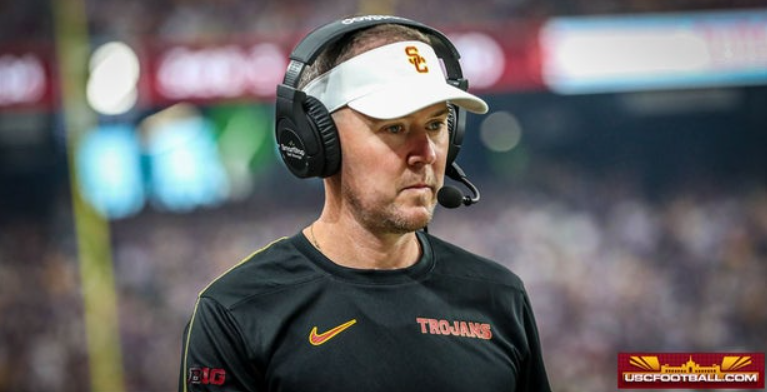
13. USC Trojans
Biggest Concern: Pass Rush
USC’s revamped defense under D’Anton Lynn showed significant improvement in their Week 1 victory over LSU, although the pass rush didn’t make a major impact. The Trojans managed only eight pressures and failed to record any sacks against the Tigers in Las Vegas. Last season, Alex Grinch’s defense averaged 15.9 pressures per game.
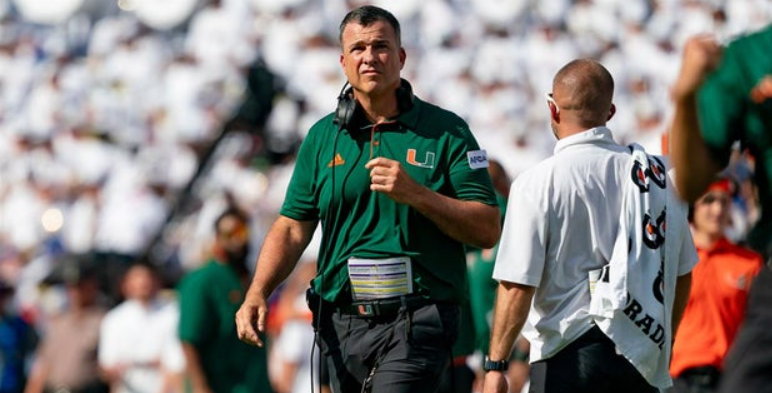
12. Miami Hurricanes
Biggest Concern: Handling Success
Miami has made it into the AP Top 20 for the past three seasons, only to finish each year unranked. After a strong Week 1 victory against Florida State, the Hurricanes soared to No. 12, marking their highest ranking since 2020. They appeared to be a College Football Playoff contender on Saturday, but can they sidestep the puzzling losses that have troubled the program in recent years? Tennessee Volunteers.

11. Utah Utes
Biggest Concern: Secondary
Utah brought back only two starters from a secondary that finished No. 79 in the nation for passing yards allowed per game last season (237.6). In Week 1, the Utes limited Southern Utah to just 71 passing yards, but we’ll need more data before we can remove this from our list of concerns.

10. Michigan Wolverines
Biggest Concern: Offense
Michigan has several concerns on the offensive side following a troubling 30-10 victory against Fresno State. Only one of the Wolverines’ 11 drives exceeded 50 yards, and their 3.3 yards per play in the first half marked the lowest total since 2017. Although quarterback Davis Warren performed adequately, he appears to be a step down from JJ McCarthy. Additionally, the offensive line has significant room for improvement.
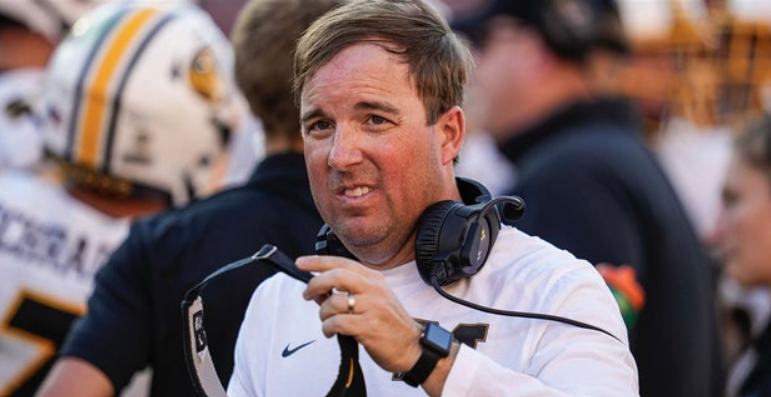
9. Missouri Tigers
Biggest Concern: Cornerback
The Tigers lost cornerbacks Kris Abrams-Draine and Ennis Rakestraw Jr. from their defense, which ranked seventh in the SEC for passing yards allowed per game last season. Clemson transfer Toriano Pride Jr. performed well at left cornerback against Murray State, but redshirt junior Dreyden Norwood faced difficulties at times on the right side. In the coming weeks, we’ll gain more insights into the potential of the Tigers’ secondary.

8. Penn State Nittany Lions
Biggest Concern: Kicker
Starting kicker Sander Sahaydak missed his lone field goal attempt (from 47 yards) in Week 1 against West Virginia. Last year, he was the starter in the opener against the same team and missed both of his field goal attempts, leading to him being replaced by the now-gone Alex Felkins. Sahaydak is 0-3 over the last two seasons. Head coach James Franklin voiced his support for Sahaydak after the game, but how much longer will the redshirt junior be given to prove himself?
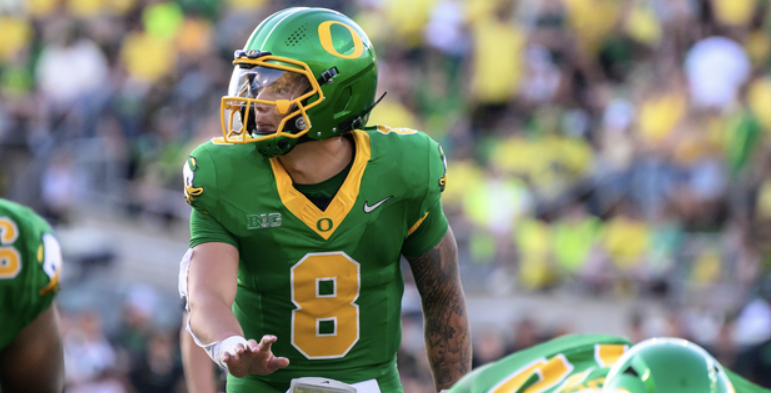
7. Oregon Ducks
Biggest Concern: Quarterback
National football analyst Clint Brewster expressed doubt about Oregon’s championship prospects with Gabriel as the starting quarterback after his lackluster Week 1 performance. Although he completed 41 of 49 passes for 380 yards and two touchdowns against FCS Idaho, he struggled to throw downfield, with an average target depth of just 4.3 yards. Head coach Dan Lanning noted that Idaho’s secondary limited opportunities for deeper throws by playing coverage over the top. This issue must be addressed as the Ducks prepare to begin Big Ten play later this month.
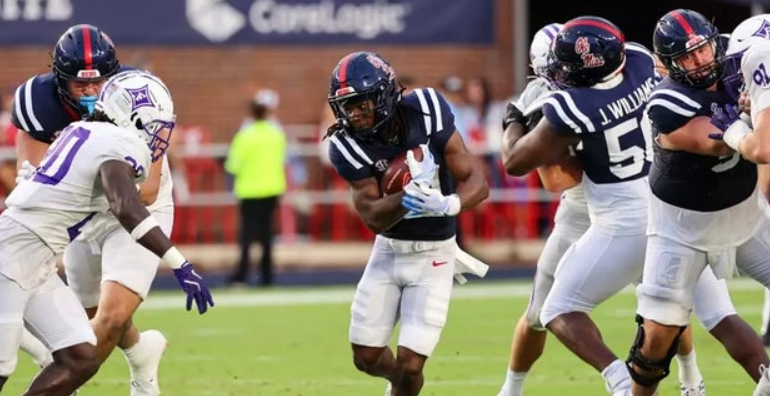
6. Ole Miss Rebels
Biggest Concern: Run Game
It’s difficult to find fault with Ole Miss following their impressive 76-0 victory over Furman in Week 1. The 76 points scored marked the highest in a single game during the Lane Kiffin era and were tied for the most since 1935. However, despite accumulating 243 rushing yards overall, only 84 of those came in the first half, averaging less than five yards per carry. Ole Miss’ leading running backs, Ulysses Bentley and Henry Parrish, didn’t seem as dynamic as the rest of the offense.
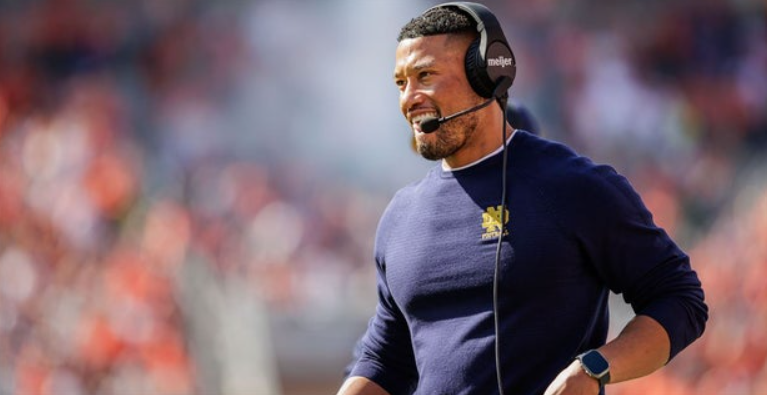
5. Notre Dame Fighting Irish
Biggest Concern: Left Guard
Notre Dame’s young offensive line performed well against a tough Texas A&M defensive front in Week 1, but there were some issues. Sophomore Sam Pendleton made his first career start and ended with a Pro Football Focus offensive grade of 54.9, the lowest among all starters. He allowed two pressures and two quarterback hits, and his performance in the run game was inconsistent.

4. Alabama Crimson Tide
Biggest Concern: Left Tackle
Kadyn Proctor faced scrutiny following a rough freshman season and his spring transfer saga with Iowa. After injuring his shoulder during warm-ups before the opener, he is now seen as week-to-week. In the meantime, Alabama will need Elijah Pritchett to step up at left tackle, having lost the position to Proctor last season. Pritchett also lost a competition in fall camp for the right tackle spot to Wilkin Formby.

3. Texas Longhorns
Biggest Concern: Pass Rush
Concerns arose about Texas’ rushing attack after the Longhorns lost two running backs during fall camp, but freshman Jerrick Gibson and junior Jaydon Blue alleviated those worries in Week 1. However, the Longhorns struggled to pressure the quarterback in their victory over Colorado State, finishing with no sacks and only seven pressures. Texas is looking for improved performance against a faltering Michigan offense in Week 2 at the Big House.
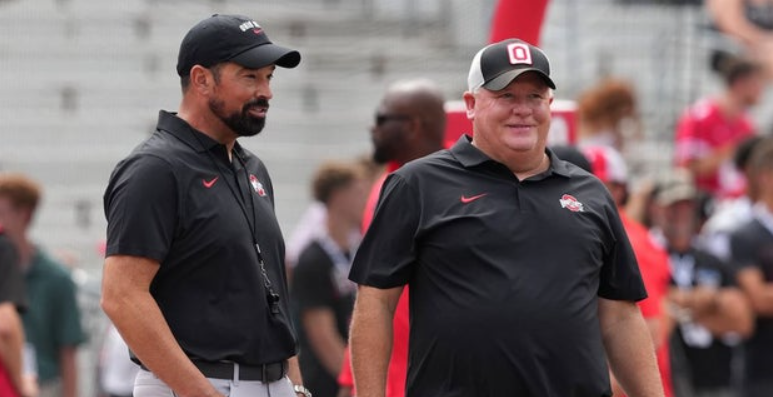
2. Ohio State Buckeyes
Biggest Concern: Offensive Line
Ohio State’s primary concern heading out of fall camp was its offensive line, especially at right guard. The Buckeyes “aim to demonstrate greater dominance” in the trenches against Western Kentucky in Week 2, following a sluggish performance in their Week 1 victory over Akron, as noted by Bucknuts’ Patrick Murphy. Tegra Tshabola started at right guard but received a modest run-blocking grade of 66.5 from Pro Football Focus.

1. Georgia Bulldogs
Biggest Concern: Defensive Line
The Bulldogs were already lacking depth on the defensive line in Week 1, missing Jordan Hall and Xzavier McLeod against Clemson. Then, during their 34-3 victory over the Tigers, Warren Brinson and Mykel Williams suffered injuries. Head coach Kirby Smart indicated that Williams has a Grade 2 ankle sprain and will be evaluated on a week-to-week basis. The Bulldogs will need to be fully healthy for their game against Alabama later this month.

Leave a Reply